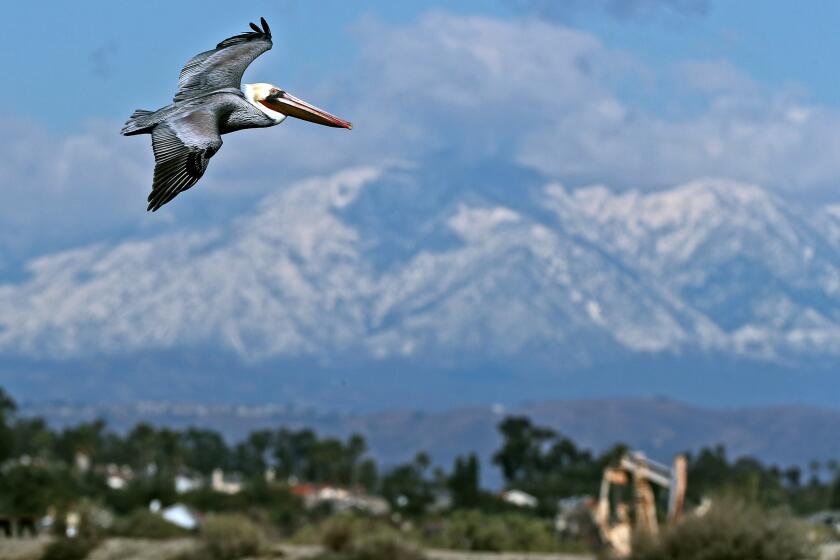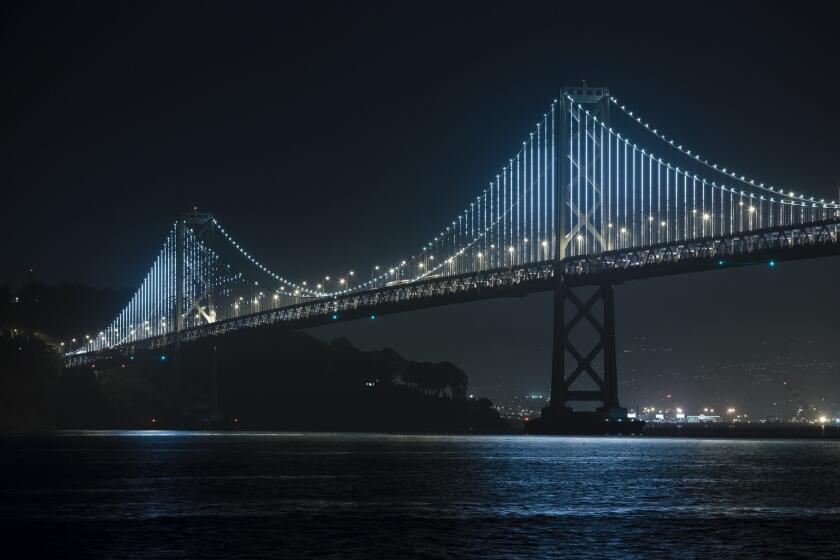DeMassa, Villar Bury Hatchet in Secret Deal
Louis Villar, the kingpin of the Coronado Company drug-smuggling ring, has dropped a malpractice suit against his former lawyer, Philip DeMassa, ending a pitched 5-year feud that saw both men convicted of felonies.
The settlement, reached early this week, prohibits disclosure of its terms. But attorneys in the case said Friday that it resolves both the malpractice suit in San Diego and a dispute in South Carolina over rights to $320,000 in property seized by federal drug prosecutors.
“These are two human beings who would like to pursue the rest of their lives and not expose the past any further,” said Brian Monaghan, attorney in San Diego for Villar, whose whereabouts are secret.
Until this week, DeMassa and Villar had spent much of the last five years exposing as much of each other’s pasts--or purported pasts--as they could.
DeMassa pleaded guilty last fall to making illegal currency transactions and harboring a fugitive, the anticlimactic conclusion to a federal investigation fueled by Villar’s testimony against his former lawyer.
Villar, surrendering after 4 years as a fugitive, had pleaded guilty to drug charges in 1982 and was sentenced to 10 years in federal prison, forfeiting $4.2 million in drug profits. But a few months later, the former Coronado High School Spanish teacher suddenly fired DeMassa and agreed to become a government witness in an ongoing investigation of the Coronado Company. In exchange, he was released from prison and placed on probation.
DeMassa became a primary target of the federal inquiry. Villar told investigators that DeMassa was, in effect, the corporate lawyer for the smuggling ring. Founded in the early 1970s by high school buddies who smuggled drugs from Mexico on surfboards, the Coronado Company became one of the West Coast’s biggest importers of “Thai stick” marijuana from the Orient.
Villar filed a lawsuit in San Diego County Superior Court early in 1983 accusing DeMassa of malpractice. The suit alleged that DeMassa had sold out Villar’s interests by advising him to accept the plea bargain that resulted in a decade-long jail sentence. It charged that DeMassa was protecting himself against the likelihood that Villar would implicate DeMassa if he cooperated with prosecutors.
“DeMassa’s representation created a nightmare of conflicts,” Monaghan said in a letter to DeMassa’s attorney, Charles Dick Jr., filed in Superior Court. “At the time he advised Villar, DeMassa was concurrently representing a number of other criminal defendants involved in the Coronado Company and faced criminal exposure himself for his role in the smuggling operation.”
Meanwhile, Villar was supplying Drug Enforcement Administration and Internal Revenue Service investigators with the information that became the basis for a three-day search of DeMassa’s law office and home and, in 1984, the lawyer’s indictment on 20 felony charges, including conspiracy to smuggle drugs.
Villar immediately became the primary target of DeMassa’s defense. In court filings and hearings, DeMassa and his lawyers painted Villar as exploitative and manipulative and said his testimony against DeMassa was pure invention, devised to secure Villar’s release from jail.
Defense attorneys across the nation rallied to DeMassa’s defense, saying federal investigators’ seizure of his records threatened the sanctity of the attorney-client relationship. DeMassa appeared on the “60 Minutes” television program, sharply attacking Villar and the investigation.
Federal prosecutors tried unsuccessfully to stop DeMassa from taking Villar’s deposition in the malpractice case, arguing that testimony by Villar might compromise the federal criminal investigation. When Villar did give his deposition, he withdrew some of the allegations that formed the core of the criminal case against DeMassa, according to attorneys familiar with the testimony.
Ultimately, Villar never appeared at DeMassa’s trial. DeMassa pleaded guilty in November to four lesser counts on the 22nd day of the trial, before prosecutors could call Villar to the stand. DeMassa was sentenced in December to serve six months in a halfway house and pay a $100,000 fine. As part of the plea bargain he temporarily halted his practice in federal court.
DeMassa was released from the New Horizons halfway house July 2, after serving 4 1/2 months of the six-month term, according to Chief Probation Officer Mark Fisher.
DeMassa declined Friday to comment on the settlement in the malpractice case. He still faces a disciplinary hearing before the State Bar of California. But attorneys say he might be able to retain his license to practice law, because he did not plead guilty to crimes involving moral turpitude.
As part of the settlement of the civil disputes, Villar dropped a pending claim in South Carolina to $320,000--the proceeds of the government’s sale of a condominium it improperly seized from him in the drug probe.
DeMassa claimed that Villar has turned the property over to him as partial payment of legal fees. But Villar alleged that DeMassa duped him of the condo by slipping the document conveying the property into a stack of papers Villar signed before his initial sentencing in 1982.
Attorneys familiar with the settlement declined to say if it called for a division of the disputed funds. But they confirmed that its provisions end the feud between Villar and DeMassa.
“It’s been a bloody war between two people who finally decided they wanted to part company and go their separate ways,” one lawyer said.
More to Read
Start your day right
Sign up for Essential California for news, features and recommendations from the L.A. Times and beyond in your inbox six days a week.
You may occasionally receive promotional content from the Los Angeles Times.






